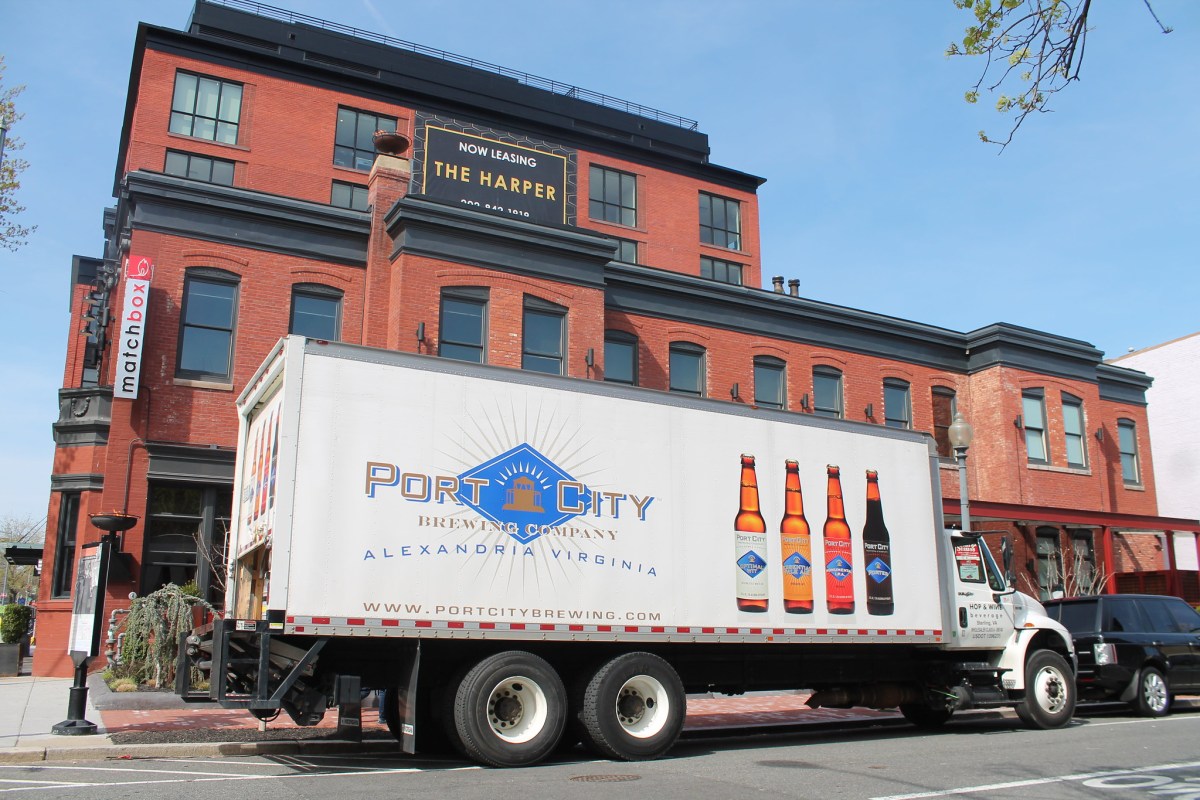Cities need to treat curb space like restaurants treat its prime tables.
That’s one finding of a just-finished three-month pilot program in Washington, D.C., where officials required delivery and taxi companies to reserve specific time slots to pick up or drop off packages or people at specific places.
By the end of the August-to-October experiment in nine District neighborhoods, double-parking on nearby streets declined by 64 percent and no traffic injuries occurred near any of the sites, said the District Department of Transportation, who worked with an app called curbFlow that makes it easy to reserve slots for the 12-hour-a-day program.
“[We’re] being open to innovation and experimentation,” DDOT Director Jeff Marootian told Streetsblog. “Our dedication of curbside infrastructure for pick-up and drop-off commercial deliveries is a positive step in making our roadways safer and more efficient.”
Loading zones were once passive street swaths where trucks dumped cargo at any time of day, but the rise in ride hail companies and e-commerce sites promising expedited shipping has clogged streets with taxis and delivery trucks.
That’s created an intense competition for commercial parking slots where vehicles vie for a narrow slice of asphalt, sometimes cueing up, circling the block, or double parking before dropping off parcels and people. But cities don’t always understand what companies are using curbs and when, how often, and how long vehicles are idling there.
Apps like curbFlow help cities organize commercial zones and manage traffic by letting freight and delivery companies know when spaces are available and help them plan their route accordingly.
“These pilots are all about learning more about what’s happening at the curb,” curbFlow founder and CEO Ali Vahabzadeh told Streetsblog. “Cities can … make loading zones smarter by having curb flow actually orchestrate pick up and drop off whether at loading zones in real time so there aren’t logjams at particular loading zones and there’s more orchestrated arrival and departure, just like there would be at an airport.”
The curbFlow app enables registered drivers to reserve space at a loading zone up to 30 minutes in advance with a five-minute buffer on either side. If the driver misses the window, the reservation gets canceled, but the driver can still use the space if it’s available. Priority goes to those who reserve in advance, and if drivers show up without a reservation, they won’t be checked in and can be turned away if another operator needs the space.
During the test, more than 6,350 drivers from 900 companies registered for the service. Drivers made 15,500 reservations for pick-ups or drop-offs over the three-month period with about 350 operators using the app each day, according to the DDOT.
On-demand delivery services, like DoorDash and Uber Eats, were the most-frequent users of the app, followed by freight companies and parcel deliveries. Those companies spent an average of seven to 11 minutes at the curb while taxis pulled up for passengers less than two and a half minutes each ride, DDOT officials said.
Paying for the use of curb space may not be that far off. Now that the pilot is over, the city will explore adding dedicated locations along corridors where the highest volume of deliveries are made and double the number of locations for ride hail companies to pick up and drop off passengers from 15 to 30 by the end of the year. An earlier pilot that tested dynamic parking pricing in D.C.’s Chinatown could make residents and businesses more comfortable with the costs of commercial parking, too.
Other changes will be coming soon to capital streets. The city is currently managing a four-month pilot for about 400 shared mopeds. The rapid popularity of shared e-scooters and dockless bikes has encouraged planners to create 60 micromobility corrals and dismount zones set primarily in “No Parking” zones by early next year. And a congestion pricing study for district’s downtown, which will examine different pricing levels for passenger and commercial vehicles, should be completed by June.
“We embrace innovation, we want to allow for pilot programs, make our city safer and meet our sustainability goals,” Marootian said.
CurbFlow meanwhile is bringing its reservable loading zone model to Columbus, Ohio for a 12-month pilot beginning on Monday. Ride hail services as well as freight and parcel companies will be able to enroll for free in a one-month trial period, but then they’ll get charged to use the app. Vahabzadeh declined to reveal the pricing structure although he noted his app is teaming up with law enforcement to regulate the road space in Ohio.
“Operators and drivers want to do the right thing,” he said. “They don’t want to be double parking or circling block for more space. Of stakeholders team up and provide more access for loading and unloading space for commercial activity, drivers will use it.”




